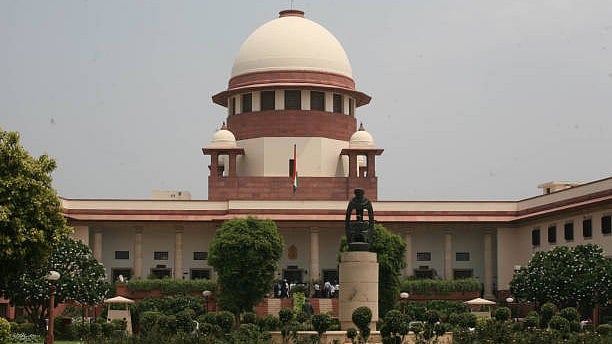
Supreme Court
Credit: iStock Photo
New Delhi: The Supreme Court on Tuesday said that a candidate from reserved category, who availed fee concession and age relaxation, cannot be recruited against general seats, even with higher marks, if the rules put an embargo on it.
A bench of Justices Surya Kant and Joymalya Bagchi said recruitment or a reserved candidate in open competition with general candidates against unreserved seats would depend on the facts of each case.
"In the event there is no embargo in the recruitment rules or employment notification, such reserved candidates who have scored higher than the last selected unreserved candidate would be entitled to migrate and be recruited against unreserved seats," the bench said.
However, if an embargo is imposed under relevant recruitment rules, such reserved candidates would not be permitted to migrate to general category seats, the court added.
The court set aside the Delhi High Court's 2018 judgment in case of 2015 recruitment of Staff Selection Commission to the post Constables (GD) in central police forces.
The Union government cited an office memorandum of July 1, 1998, which provided that SC/ST/OBC candidates who have availed relaxations in age limit, experience qualification or number of chances in written examinations would be deemed unavailable for consideration against the unreserved vacancies.
The OBC candidates in the SSC exam were granted age relaxation of three years.
The High Court, however, relied upon Jitendra Kumar Singh & Anr Vs State of UP & Ors (2010) to hold that denying the OBC candidates to migrate to the unreserved category though they scored higher than the last candidate in such category ran counter to the principles of merit-based recruitment and would be opposed to the principles of equality.
After examining the matter, the bench, however, held the OBC candidates had availed concession of age for participating in the recruitment process in the teeth of office memorandum of 1998, the High Court was wrong in applying the ratio in Jitendra Kumar and permitting them to be considered for appointment in the unreserved category.
"The High Court erred in mechanically applying the ratio in Jitendra Kumar to the present case without appreciating the difference in the factual matrix of the present case with the cited authority," the bench said.
Justice Bagchi, who authored 22-page judgment for the bench, emphasised a judgment must be read in the facts of a particular case and cannot have universal application.
The court also pointed out the decision in Jitendra Kumar is not founded on the general principles but on the interpretation of the relevant statute, government order and instructions regulating the selection process under the UP Public Services (Reservation for Scheduled Castes, Scheduled Tribes and Other Backward Classes) Act, 1994.
In the present case, the 1998 office memorandum barred the migration of a reserved candidate.
The court also pointed out the petitioners have without demur participated in the selection process and had not questioned the constitutional validity of the office memorandum.
